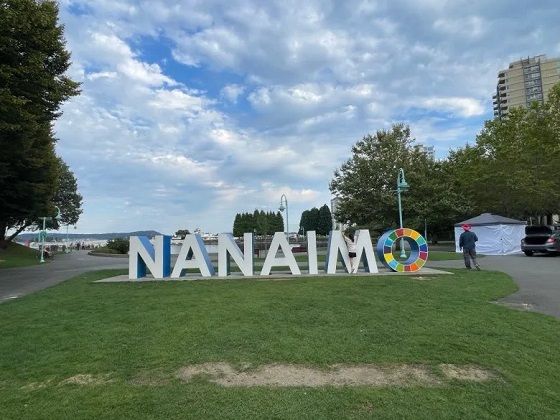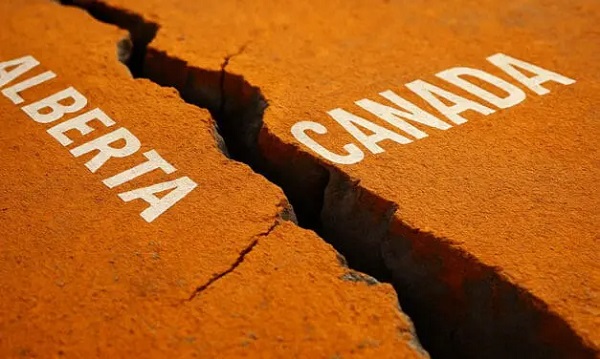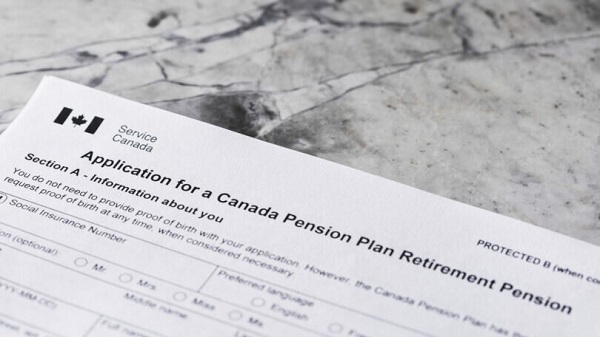2025 Federal Election
The Anhui Convergence: Chinese United Front Network Surfaces in Australian and Canadian Elections

Revealing Beijing’s Transnational Influence Strategy
From Markham to Sydney: Tracing the CCP’s Overseas Influence Web
In the waning days of two federal election campaigns on opposite sides of the world, striking patterns of Chinese Communist Party election influence and political networking are surfacing—all tied to an increasingly scrutinized Chinese diaspora group with roots in the province of Anhui.
In Australia, Liberal candidate Scott Yung opened a business gala co-hosted by the Anhui Association of Sydney, a group officially designated by Beijing as an “overseas Chinese liaison station,” as reported by James King of 7NEWS. King identifies the Anhui group as part of a global network directed by Beijing’s United Front Work Department, an influence arm of the Chinese state that aims to shape foreign societies through elite capture and soft power.
King’s reporting is reigniting global concern over Chinese foreign interference, of the type previously exposed by The Bureau in Canada, which revealed that several Liberal Party of Canada officials, deeply involved in fundraising and election campaigning in the Greater Toronto Area, also serve as directors of an Anhui-based United Front “friendship” group with ties to a notorious underground casino operation.
That same group shares overlapping members and leadership with the Jiangsu Commerce Council of Canada (JCCC), a United Front-affiliated organization that controversially met with Liberal leadership candidate Mark Carney in January.
In the 7NEWS report, Yung is shown speaking—as a representative of Opposition Leader Peter Dutton—at a charity fundraiser co-hosted by the Anhui Association, a group previously celebrated by Beijing for supporting China’s territorial claims over Taiwan. According to King, the Anhui Association of Sydney was one of 14 overseas Chinese organizations designated in 2016 by the Anhui Foreign Affairs Office to serve as a liaison station advancing Beijing’s international strategy. Government documents show the group received AUD $200,000 annually, with instructions to “integrate overseas Chinese resources” into Anhui’s economic and social development.
Yung’s appearance on behalf of Liberal leader Dutton at an event ultimately backed by Beijing echoed mounting concerns surrounding Labor Prime Minister Anthony Albanese, his opponent in Australia’s May election.
Just weeks earlier, The Australian revealed that Albanese had dined with the vice-president of a United Front group at a Labor fundraiser—prompting sharp criticism from Liberal campaign spokesperson James Paterson, the Shadow Minister for Home Affairs. Paterson said Albanese had “all sorts of serious questions” to answer, warning that “Xi Jinping has described the United Front Work Department as the Party’s magic weapon,” according to 7NEWS.
The news organization emphasized that it “does not suggest that the Anhui Association of Sydney, its former chairman, or any of its associates have committed foreign interference or otherwise acted illegally,” noting that it is legal in Australia to act on behalf of a foreign government—so long as those actions are not covert, deceptive, or threatening.
But King’s investigation underscores a broader concern—echoed in reporting from Canada and New Zealand—that Chinese diaspora organizations, operating through the CCP’s United Front system, are being strategically leveraged by Beijing’s intelligence and foreign policy arms to fund major political parties across liberal democracies, influence parliamentary policy in line with CCP objectives, and shape leadership pipelines, including the placement of favored candidates and bureaucrats into sensitive government roles.
This strategy finds a near-identical expression in Canada, where intelligence officials in Toronto have long monitored a related organization: the Hefei Friendship Association, which maintains structural ties—via Anhui province United Front entities—to the Sydney group. Founded prior to 2012 by alleged underground casino operator Wei Wei, the Hefei group is based in Markham, Ontario, and plays a central role in an ongoing CSIS investigation into foreign interference.
Documents and sources reviewed by The Bureau confirm that the Hefei Friendship Association shares leadership with the Jiangsu Commerce Council of Canada (JCCC), a group openly tied to provincial-level United Front Work Department officials in Jiangsu, the province adjacent to Anhui. In earlier reporting on the Markham illegal casino network—widely referred to as the 5 Decourcy case—The Bureau cited an investigator with direct knowledge of what intelligence sources describe as a botched national security probe. The inquiry focused on Canadian politicians attending the casino alongside Chinese community leaders affiliated with Beijing’s overseas influence operations.
One legal source close to the file summarized the issue bluntly: “The national security and intelligence apparatus of this country is ineffective and broken. I’m in disbelief at the lack of ethics and enforcement around government officials.”
According to national security sources, the 5 Decourcy mansion-casino is viewed as just one visible node in a transnational system stretching from Toronto to Vancouver—a system that includes organized crime networks, unregistered lobbying, and foreign-aligned political financing. A CSIS source confirmed that the operation—which allegedly entertained politicians—fits Beijing’s model of leveraging transnational organized crime to advance political goals abroad. That model, they noted, closely mirrors warnings from Australia’s ASIO, which has linked similar figures in the real estate sector to major donations to all three of Australia’s major political parties, including those led by Dutton and Albanese.
Further investigation by The Bureau reveals deeper overlap between the Anhui United Front networks and the Jiangsu group that met with Mark Carney in January. Among the co-directors of the Anhui United Front group—pictured in meetings and named in documents alongside Wei Wei—is a prominent Markham-area Liberal riding official, involved in fundraising for Justin Trudeau. That same individual holds a leadership role with the JCCC, which met with Carney in a meeting that was initially denied, then downplayed.
Images reviewed by The Bureau show Wei Wei seated beside a Liberal Party politician and community organizer at a private association gathering, while another Liberal official with ties to the JCCC stands behind them. A second photo, taken inside Wei Wei’s residence, shows additional Liberal figures affiliated with Anhui- and Jiangsu-linked United Front community groups.
Documents obtained by King show that the Anhui Association of Sydney was tasked to “strive to closely integrate overseas Chinese affairs with the province’s economic and social development,” according to the director of the Anhui Foreign Affairs and Overseas Chinese Affairs Office. The Bureau has reviewed similar language in Canadian documents signed by JCCC leaders, including the Hefei Friendship Association director tied to Wei Wei—reinforcing that both the Canadian and Australian networks appear to operate under direct, formal tasking from provincial CCP entities.
As these revelations now resurface in the middle of Canada’s federal election campaign, they echo with findings in New Zealand. The 2018 political implosion involving MP Jami-Lee Ross offered a cautionary tale of how foreign-aligned networks can entangle party finances, diaspora outreach, and internal leadership struggles.
Ross, once a rising star in New Zealand’s National Party, secretly recorded party leader Simon Bridges discussing a controversial $100,000 donation, which Ross alleged was tied to Chinese business interests. The scandal shattered National’s leadership and exposed vulnerabilities in its campaign finance ecosystem. In an interview with Stuff, Ross described how his relationships with Chinese community leaders, while partly grounded in legitimate social engagement, also became channels for Beijing’s political aims.
“These [Chinese] associations, which bring together the expat Chinese community, they probably do have a good social function in many regards,” Ross said. “But there’s a wider agenda. And the wider agenda is influencing political parties. And by influencing political parties, you end up influencing the government of the day. What average New Zealander out there can get the leadership of a political party to go to their home for dinner? What average person out there could just click their fingers and command 10 MPs to come to their event? Most people can’t. Money buys their influence.”
2025 Federal Election
NDP’s collapse rightly cost them official party status

This article supplied by Troy Media.
 By Michael Taube
By Michael Taube
Official party status requires 12 seats. The NDP got seven. End of story
Rules are rules.
That, in a nutshell, is why the NDP wasn’t granted official party status in the House of Commons on Monday. Prime Minister Mark Carney and the
Liberals, to their credit, made the right decision.
Let’s examine why.
The 1963 Senate and House of Commons Act passed an amendment that gave an annual allowance to party leaders other than the prime minister and
leader of the Opposition. In doing so, the Canadian government had to establish what constitutes a “political party.” The definition they came up with was a sensible one: it had to have a “recognized membership of 12 or more persons in the House of Commons.”
This important amendment is still used today.
The NDP fell from 24 to a paltry seven seats in last month’s federal election. (There are a total of 343 seats in the House of Commons.) They finished with 1,234,673 votes, or 6.29 per cent, which was behind the Liberals, Conservatives and Bloc Québécois. Party leader Jagmeet Singh, who had represented the former Burnaby South riding since 2019, finished a distant third in the newly created Burnaby Central riding and resigned.
The NDP’s seven seats is well below the 12-seat requirement needed for official party status. This means Canada’s socialist alternative won’t be able to ask questions in the House of Commons and will lose out on money for research purposes.
Or, to put it another way, they’re plumb out of luck.
Hold on, some people said. They pointed out that the NDP’s seat count and popular vote only plummeted because many progressive voters backed Carney and the Liberals as the best option to counter U.S. President Donald Trump and his tariffs. They felt that the NDP’s long history as a champion for unions and the working class should count for something. They suggested there should be an exception to the rule.
Guess what? They’re wrong.
This is the worst election result in the party’s history. Even its predecessor, the Co-operative Commonwealth Federation (CCF), did marginally better in its first campaign. The CCF won seven out of 245 seats—and earned 410,125 votes, or 9.31 per cent—in the 1935 election. Party leader J.S. Woodsworth, who had represented the riding of Winnipeg North Centre as an Independent Labour MP since 1925, comfortably held his seat.
Meanwhile, this won’t be the first time they’ve ever lost official party status.
The NDP dropped from 43 to nine seats in the 1993 election. It was a dismal showing, to say the least. There was a suggestion at the time that then-party leader Audrey McLaughlin, the first woman to lead a party with political representation in Canada’s House of Commons, deserved a better fate. While the NDP certainly came closer to achieving the 12-seat requirement in this particular election, Prime Minister Jean Chrétien and the Liberals decided against granting them official party status.
Why? As I mentioned earlier, rules are rules.
Then again, British pilot Harry Day notably told his fellow flying ace Douglas Bader in 1931, “You know my views about some regulations—they’re written for the obedience of fools and the guidance of wise men.”
Does this mean that individuals and organizations who follow rules are, in fact, fools? Not at all. While certain rules in a liberal democratic society can range from slightly questionable to utterly ridiculous, they’re usually put in place for a specific purpose.
In the case of the House of Commons, it’s to ensure that a bar has been set with respect to political representation. Is 12 seats the right number? That’s difficult to say. It certainly prevents small protest parties and one-issue parties that unexpectedly win a tiny number of seats in an election from acquiring power and status right off the bat. They need to win more seats and grow in size and stature to reach a point of respectability. Most of them never reach this point and disappear while others float in a constant state of mediocrity like the Green Party of Canada. ’Tis the nature of the political beast.
One final point. If Singh and the NDP had reached double digits in total number of seats in 2025, a solid case could have been made in favour of official party status. If they had finished with 11 seats, it would have almost been a lock. Neither scenario ultimately materialized, which is why Carney and the Liberals did exactly what they did.
Michael Taube is a political commentator, Troy Media syndicated columnist and former speechwriter for Prime Minister Stephen Harper. He holds a master’s degree in comparative politics from the London School of Economics, lending academic rigour to his political insights.
Troy Media empowers Canadian community news outlets by providing independent, insightful analysis and commentary. Our mission is to support local media in helping Canadians stay informed and engaged by delivering reliable content that strengthens community connections and deepens understanding across the country.
2025 Federal Election
Judicial recounts give Conservatives 2 more seats, keeping Liberals short of majority

From LifeSiteNews
After a judicial recount, Conservative candidate Kathy Borrelli has officially won over Liberal incumbent Irek Kusmierczyk, in the Ontario riding of Windsor-Tecumseh-Lakeshore.
Judicial recounts from the 2025 federal election have given the Conservative Party two new seats, with one candidate winning by just four votes.
After a judicial recount, Conservative candidate Kathy Borrelli has officially won over Liberal incumbent Irek Kusmierczyk, in the Ontario riding of Windsor-Tecumseh-Lakeshore.
Borrelli got 32,090 votes, with Kusmierczyk getting 32,086 votes, and NDP candidate Alex Ilijoski getting 4,240 votes.
In the Newfoundland riding of Terra Nova-The Peninsulas, Conservative candidate Jonathan Rowe beat out Liberal Anthony Germain by just 12 votes after a recount with the initial result showing a Liberal victory.
The new election results mean the Conservatives now have 144 seats with the Liberals at 169, three short of a majority.
Judicial recounts are automatically triggered when the margin of victory for a candidate is less than 0.1 percent of valid votes.
While these recounts have favored the Conservatives, others have gone in the Liberal Party’s favor.
A May 16 judicial recount switched the southern Ontario riding of Milton East-Halton Hills South to the Liberals with a 21-vote victory over the Conservatives.
Overall, the election results have been a big blow to the Conservative Party, which on top of losing the election also saw its leader, Pierre Poilievre, fail to win his long-held seat. However, Poilievre is expected to run in a yet-to-be-announced by-election in Alberta to reclaim a seat in Parliament.
-

 Addictions12 hours ago
Addictions12 hours agoMan jailed for trafficking diverted safer supply drugs, sparking fresh debate over B.C. drug policies
-

 Alberta14 hours ago
Alberta14 hours agoHow Trump and Alberta might just save Canada
-

 Bruce Dowbiggin9 hours ago
Bruce Dowbiggin9 hours agoCaitlin Clark Has Been The Real Deal. So Her WNBA Rivals Hate Her
-

 Business13 hours ago
Business13 hours agoThe Liberals Finally Show Up to Work in 2025
-

 Alberta12 hours ago
Alberta12 hours agoJann Arden’s Rant Will Only Fuel Alberta’s Separation Fire
-

 Banks10 hours ago
Banks10 hours agoCanada Pension Plan becomes latest institution to drop carbon ‘net zero’ target
-

 Daily Caller11 hours ago
Daily Caller11 hours agoThere’s A Catch To California’s Rosy Population Stats
-

 espionage1 day ago
espionage1 day agoTrudeau Government Unlawfully Halted CSIS Foreign Operation, Endangering Officers and Damaging Canada’s Standing With Allies, Review Finds




